VET APPROVED

The information is current and up-to-date in accordance with the latest veterinarian research.
Learn more »Click to Skip Ahead
Ferrets are quite sensitive to heat and cold, so you need to take care of your pet’s comfort when it comes to temperature. A ferret is a small predator with a compact body and dense fur. Their fur functions as an insulating layer, keeping them warm in the winter but also preventing them from overheating on a hot summer day.
However, since you are their owner and responsible for their well-being, you must pay attention to the ideal temperature for your pet’s habitat, which for ferrets is between 65 and 75°F (18 to 23°C). There are a few simple things that you can do to ensure that your pet is kept at optimum conditions all year round while also reducing the risk of overheating or hypothermia.
In this guide, we discuss the importance of temperature for ferrets and how to ensure that they are comfortable and thriving in your home.

Normal Ferret Temperature
Ferrets are prone to heat stress and cannot tolerate extreme temperatures. Therefore, the ideal temperature for a ferret is between 65 and 75°F (18 to 23°C). Temperatures above 80°F can be uncomfortable for these small mammals, as they are unable to sweat and don’t tolerate the heat well.
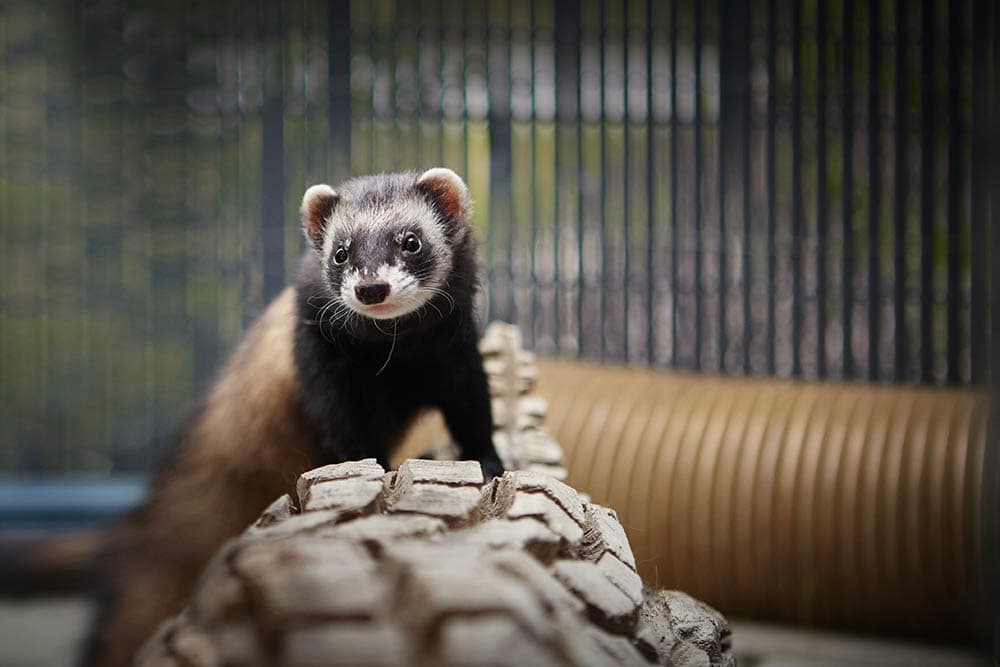
Normal Temperature for Ferrets in Summer
If you live in a hot area and the outside temperatures rise above 80°F, it’s best to keep your ferret inside the house. However, even if their cage is well-ventilated, it can be difficult to keep it at the ideal temperature. To prevent the cage from getting too hot, you need to find a place with no direct sunlight and good air circulation. A basement, which usually has a constant cool temperature, is ideal in the summer.
If you absolutely have to take your ferret outside, avoid doing so when the sun’s rays are strongest. In addition to heatstroke, ferrets can also get sunburn.
Normal Temperature for Ferrets in Winter
Ferrets can suffer greatly from the cold. However, their cold tolerance is somewhat better than their heat tolerance. Generally, a temperature below 55°F is considered too cold for these small mammals. Ferrets tend to eat much more during the colder seasons, as this helps them regulate their temperature better; a ferret may eat twice their normal amount of food in the winter. Ferrets are also susceptible to frostbite, so it’s important to protect them from the cold as much as possible. If you must take yours outside in cold weather, make sure they’re bundled up in a warm blanket.
In winter, you can also place a hot water bottle inside the cage to keep your ferret warm on the coldest nights. However, make sure it does not touch the ferret’s skin (wrap it in a towel or other fabric that your ferret cannot untie or open). If the cage is kept in a garage or another unheated outdoor building, ensure that it is in a warm place, away from drafts. In addition, when you regularly take your ferret out of their cage to play and stretch, make sure the environment is neither too cold nor too hot.
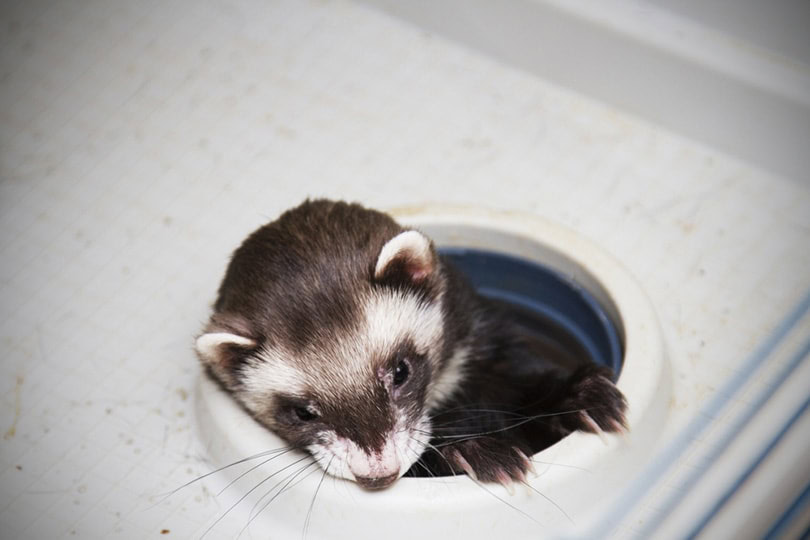
Why Can’t Ferrets Tolerate Heat?
Ferrets don’t sweat like humans, nor do they pant like dogs. Therefore, ferrets are sensitive to extreme heat, as they do not dissipate heat as efficiently as other mammals. They can also become dehydrated quickly when the temperature exceeds 80°F.

How to Maintain the Ideal Temperature for Ferrets Year-Round
To ensure that your ferret is healthy and does not suffer during temperature swings, it is important to consider several factors.
1. Age
Baby ferrets are particularly sensitive to temperature changes, so you need to make sure their environment is kept at a constant, comfortable temperature. Adult ferrets are less sensitive to temperature fluctuations, but you should still make sure they keep warm in the winter and cool in the summer.
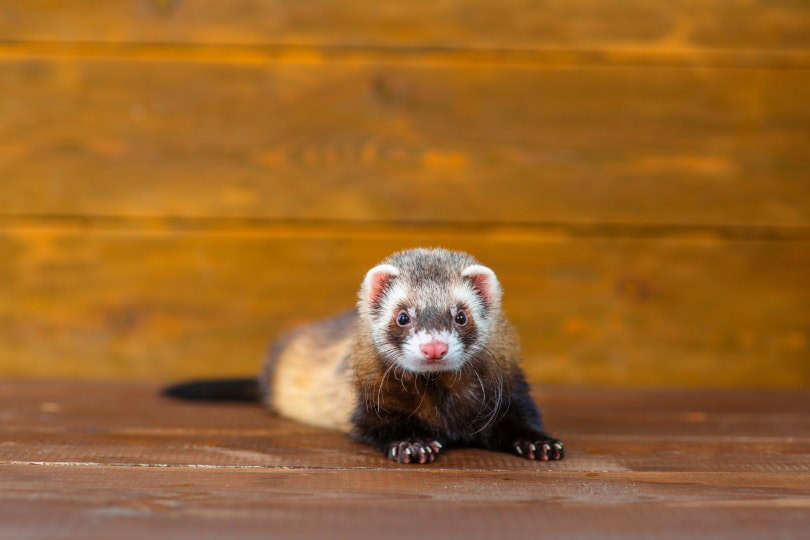
2. Housing
The type of construction of your ferret’s cage is also important when it comes to temperature. A sudden drop or spike in temperature can cause stress and discomfort. Ensure that the cage is well-ventilated during summer to prevent overheating and well-insulated during winter to keep your ferret warm.
3. Location of the Cage
Finally, the location of your ferret’s cage is essential to keep your pet at the ideal temperature. Even if the cage is correctly ventilated and insulated, the ambient temperature of the room can fluctuate. Therefore, you need to always pay attention to the temperature in the room where the cage is placed.
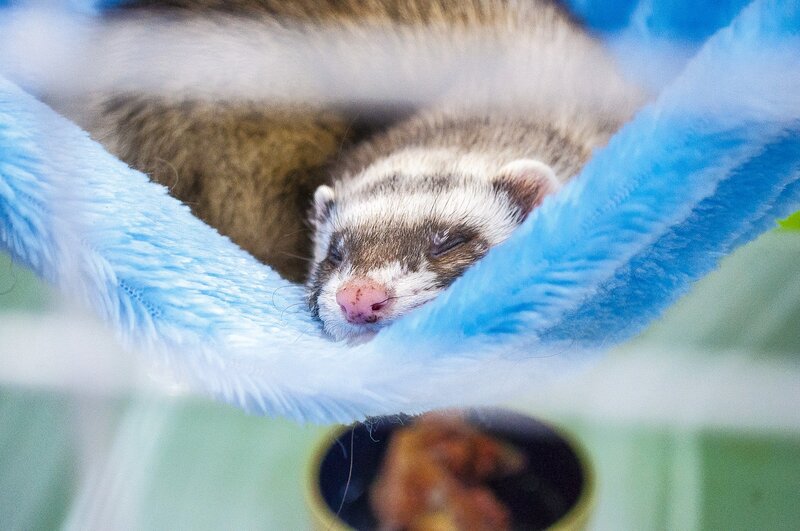

Fan vs. Air Conditioning
A fan is useful for circulating air in the room where you keep your ferret, as long as it’s not blowing directly into the cage. In addition, place it in an area where the ferret does not have access to it, to prevent your pet from slipping a fragile paw into the blades. However, a fan will not be enough to keep your small pet cool on extremely hot days when the humidity exceeds 70%.
Therefore, purchasing a small air conditioner may be necessary during heat waves. Although this unit is generally not that energy efficient, it will work well to keep your ferret cool and comfortable during extremely hot days. Remember that ferrets can’t tolerate temperatures above 80°F and can even die from overheating, so do not skimp on this important purchase.
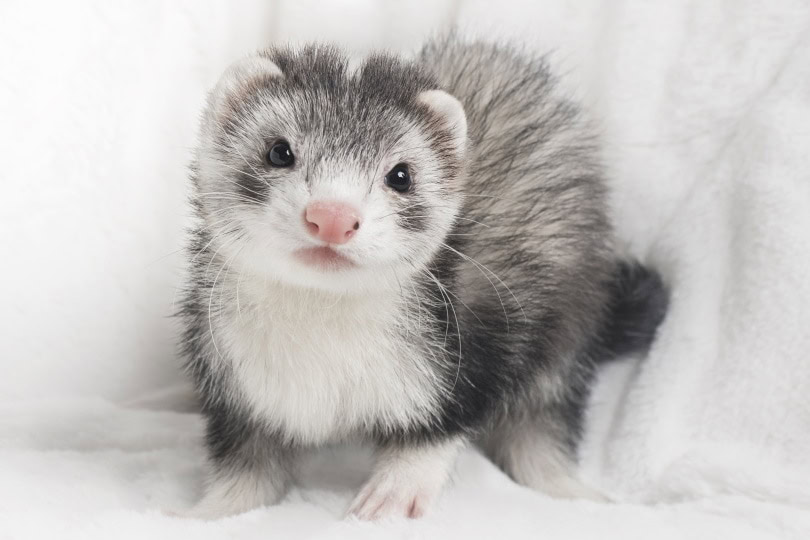

Conclusion
Ferrets are sensitive to temperature changes and require special care regarding their habitat. The ideal temperature range for these small mammals is between 65 and 75°F (18 to 23°C) and should never exceed 80°F. If you want to keep your ferret warm in the winter and cool in the summer, you need to pay attention to the cage construction, the bedding used, and the location of the cage. In addition, you should also ensure that the cage is well-ventilated in the summer and insulated from drafts in the winter.
Featured Image Credit: Steve Tsang, Unsplash
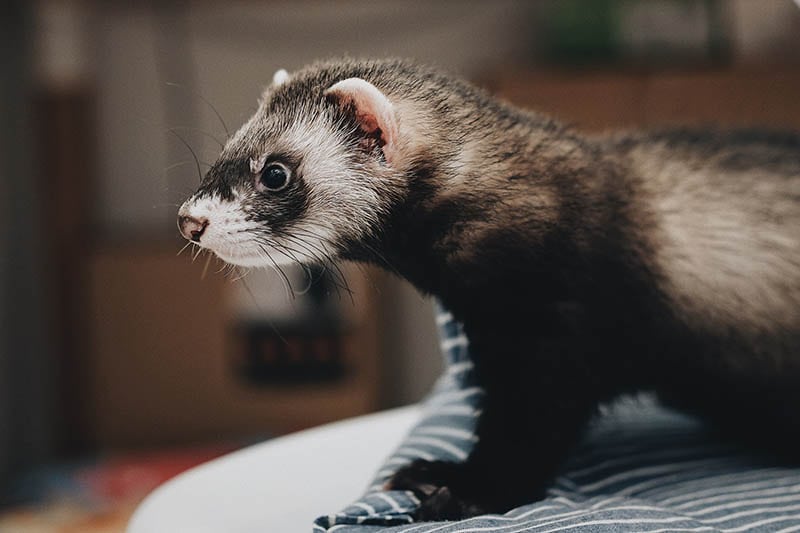





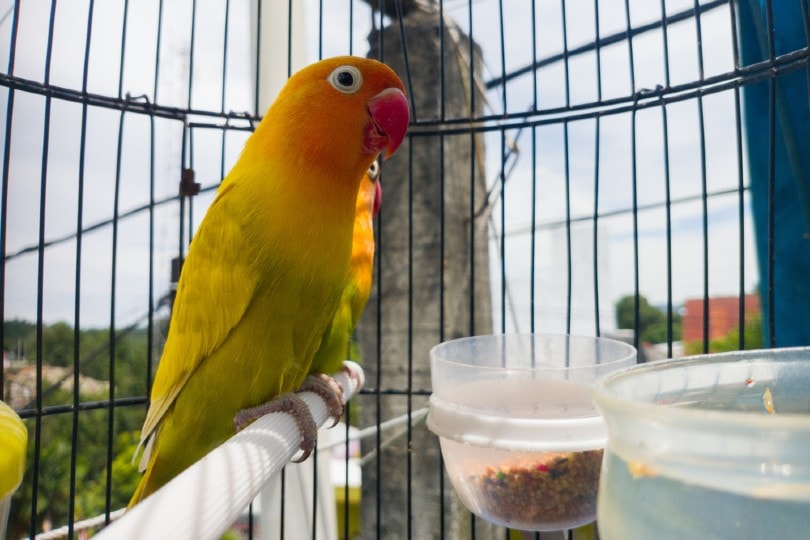
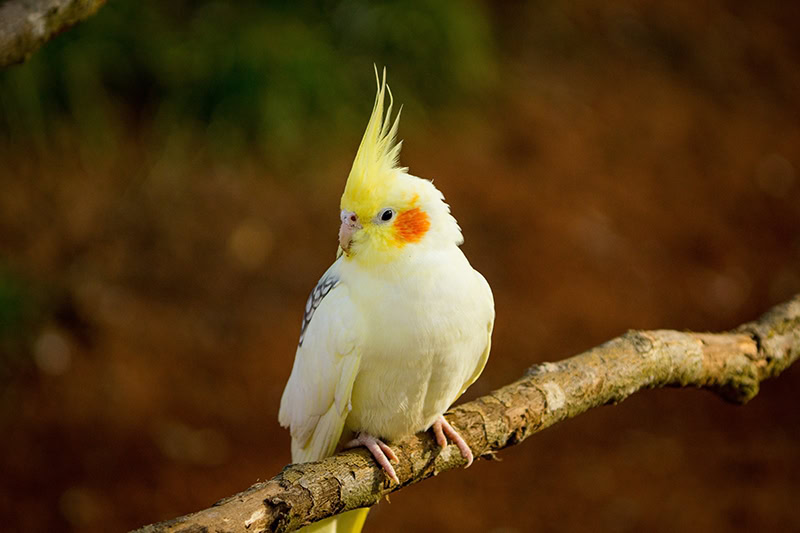



2 Responses
that was exactly the information I was looking for. I have a 4 year old ferret named mocha and my wife and I just moved and we have a carpeted basement that falls in her range and will be comfortable for her. thank you very much
Hello Patrick,
thank you very much for your nice feedback! We are glad that you found the information you were looking for in our article! We wish you and Mocha all the best!